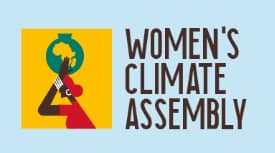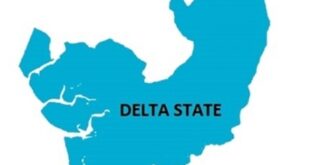“Building the voices of rural women in climate action,” in the words of Côte d’Ivoire’s Josiane Boyo Yebi, “will make sure that there are real solutions to climate change.”
She stressed that “with the climate crisis, rural women are doubly victimised. She suffers from the lack of land and from the negative effects of the climate crisis, so we must act.”
Her words highlight the West and Central African Women’s Climate Assembly which will be held in the Niger Delta between 17 and 20 October 2022.
The event is co-hosted by leading women’s movements and local community organisations including Nous Sommes Les Solutions, Khelkom Women Fishers Association, Les Femmes s’engagent, L’Association de défense des droits des aides ménagères et domestiques, Réseau des Femmes Braves and Femmes Riveraines de Campo.
Non-governmental organizations supporting the platform include Kebetkache Women Development & Resource Centre, WoMin African Alliance, Green Development Advocates, and Lumiere Synergie pour le Developpement.
According to a release from Kebetkache Women Development & Resource Centre’s Fabian Nsemeke and WoMin African Alliance’s Connie Nagiah, the assembly brings together women from Guinea Conakry, Côte d’Ivoire, Cameroon, Senegal, Mali, Burkina Faso, Sierra Leone, Liberia, Democratic Republic of the Congo and Nigeria “who daily experience the costs of the rapidly growing climate crisis.
“Participants include women resisting mining and oil and gas extraction; industrial agriculture, fishing, and forestry; and mega energy and infrastructure projects,” the release said.
The release further noted that sub-Saharan Africa is suffering the extreme costs of a climate crisis that is not of its making.
“Africa has contributed less than 3% of all carbon emissions since 1880 but is warming faster than any other region in the world. While the world’s climate has warmed by a global average of 1.1 degrees celsius, the average for Africa sits at around 1.5 degrees. Heat waves, droughts, wildfires, and cyclones, as well as locust plagues, flooding and rising sea levels affecting coastal communities are commonplace. By 2050, as many as 86 million Africans will be forced to migrate within their own countries due to climate change.
“African women face the brunt of climate impacts given a division of labour which assigns them primary responsibility for household food production and preparation, water and energy harvesting, and care for the elderly, the young and the sick.
“This critical gathering of the world’s most impacted people will foreground the gendered impacts and costs of a rapidly warming climate and offer women a space to share their experiences and organising strategies, learn from each other, deepen their knowledge, and build solidarity.”
The assembly, according to Kebetkache’s Nsemeke and WoMin’s Nagiah, aims to strengthen and unify “women-led struggles against destructive large-scale projects and false solutions to the climate crisis and offer a powerful platform for women to propose and shine a light on the real development solutions that African women and their communities need to survive now and into the future.”
This, they said, represents the start of a permanent assembly of African women for climate and development justice.
“Women and their communities in the Niger Delta have, for decades, carried the costs of ill-health, violence, hunger, and displacement, so that the world’s most powerful corporations, the wealthy and middle classes in the global North could enjoy unlimited energy supplies and development possibilities. It is apt that the Assembly is held here.
“According to Nigeria’s Ngozi Azumah: ‘Our food, our soil is very rich, but it’s been defiled by the oil and gas. Companies are not compensating us. Our office is our land. Before [the oil companies] we were working and contributing something…now there’s nothing for women to trade and feed their children.
“Ahead of the upcoming COP27 in Egypt, billed as the ‘African COP’, the voices of African women must be at the forefront for they carry the greatest costs, but they also hold the real solutions that our continent, its peoples, nature and the world desperately need.
“Women say ‘No’ to the powerful multinational corporations who wield great power over northern government delegations. They demand that their governments stand with their people first. And they insist that corporations and elites in the global North acknowledge responsibility for the climate crisis and pay their dues to the peoples and the women of Africa. The time for climate justice is now.
 PH Mundial – Port Harcourt Online Newspaper News Across The Region
PH Mundial – Port Harcourt Online Newspaper News Across The Region





